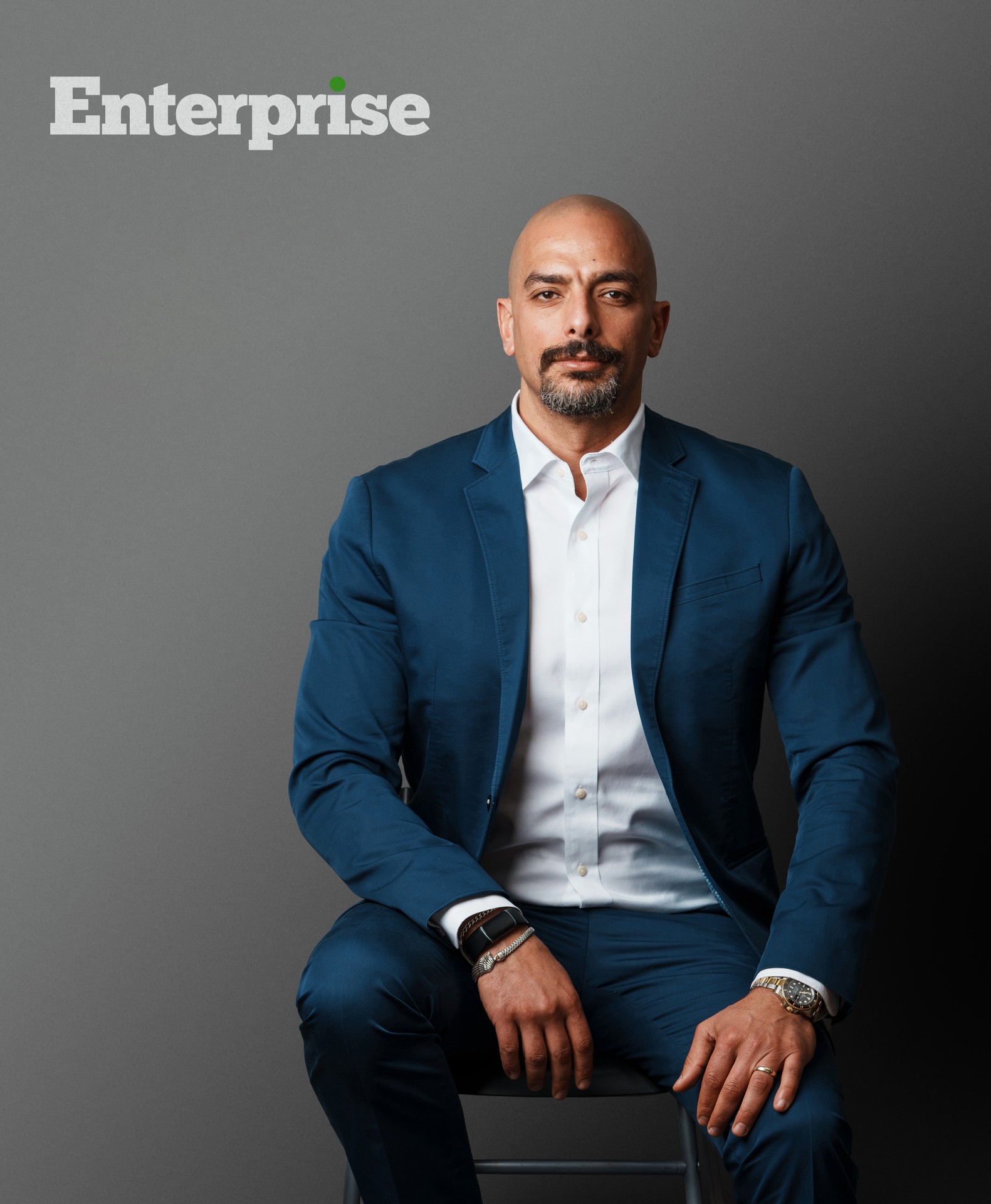Amazon’s Omar El Sahy on why we should focus on agriculture + clothing to boost local manufacturing

We recently had breakfast with 20 top CEOs to talk about why exports and FDI are key to our economy going forward. After reading our five-step recipe for turning Egypt into a global export hub and FDI magnet, participating CEOs agreed to answer two questions on the record for our latest CEO Poll.
We’ve already heard from: GSK’s Mohamed El Dababy | McKinsey’s Jalil Bensouda | Somabay’s Ibrahim El Missiri | ALC Alieldean Weshahi & Partners’ Bahaa Alieldean | HSBC Egypt’s Todd Wilcox | Actis’ Sherif El Kholy.
TODAY- Omar Elsahy (LinkedIn) is general manager of Amazon Egypt. He brings to the table a rare mix of experience: He runs a major multinational company in Egypt, he’s an entrepreneur who has started and run his own businesses, and he’s a mentor and consultant. His industry experience ranges from sales to outsourcing and retail, much of it with a tech bent. Omar was also the subject of one of our weekly My Morning Routine interviews back in 2020.
ENTERPRISE- Which industry would you put on a focused short list — and why?
OMAR EL SAHY- Before you pinpoint an industry, there are a couple of things to take into consideration when you’re talking about a country taking a path of progress. Egypt has many different types of resources, but when it comes down to it, it’s the people. You try to extract on capacity building, creating jobs, but also leveraging infrastructure and tech advancements. If you look at the human capital, the young age group and the tech savviness of the youth gives an optimistic view of where the country can go.
If I translate that into what can use a lot of tech and scale — and flourish if you invest in the capacity of people — I feel strongly about local manufacturing. This is not about 10 big companies doing the manufacturing and then exporting, but more about investing in small and medium-sized enterprises (SMEs) as they are the engine of the country’s economic growth. We need to drive manufacturing through SMEs if we’re going to leapfrog. A lot of it comes down to the private companies and the industry leaders working closely with the government to empower SMEs and integrate them in the formal economy. Nevertheless, there's a piece missing. We need to start bringing tech into local manufacturing.
If we’re saying we want to focus on local manufacturing, people think we should do what we did before at scale and really invest in it. But the question is, if we’ve been doing this for so long, why hasn’t it been working?
I think what could be developed further is tech and the digitization of local manufacturing and SMEs growth. We need to continue building on the export of physical goods, but also build on digital exports. When I say local manufacturing, people think of garments. But I also want to talk about how to do that in an era of digital transformation. This will help create a lot of new value, especially if we can streamline or optimize operations to address supply chain issues.
E: Why are exports and FDI the way forward?
OS- FDI and exports are the most sustainable economic growth measures compared to something like hot money. So, we are in alignment that they are essential for the country’s path towards progress. But we should not limit our thinking on how we get more FDI or how we can export more goods. We need to take a step back to prepare ourselves a bit more. We need to look at the different things happening around the world, disruptions and catastrophes, like COVID and recessions, for example. We need to start predicting when these things will happen so we can prepare ourselves before we engage so that we can build more on mitigation.
Egypt is very resilient in that sense, but the planning is probably where we have a little more work to do. There’s a lot of positives that have come behind that — in ready-made garments, agriculture, and other industries, but the core is planning.
We need to be able to say no to a lot of things. We’re going to have to drive a lot more focus on the industries that are most efficient for us. We can almost take a mental model of where we should be growing (strategic areas), taking very specific categories, and becoming very strong at those. Agriculture, clothing, and garments are things that we want to focus on, rather than vehicles for example. So, we really need to drive our focus where it needs to be, build from there, and import the rest. We’re not going to become an export country overnight, so we need to make sure that we can source the raw materials for the industries that we want to grow.